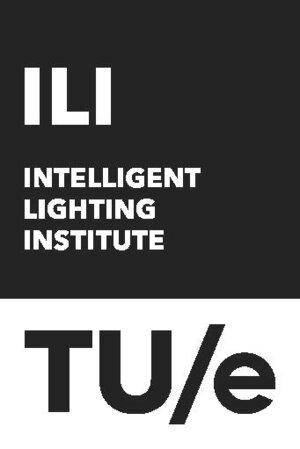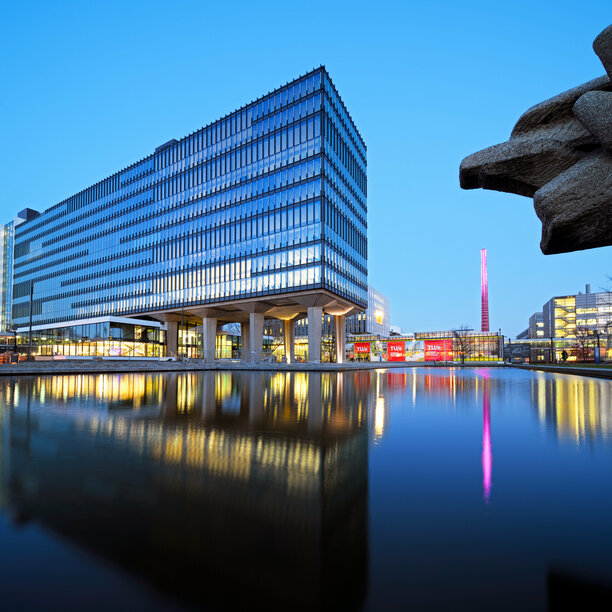
Light and lighting are essential elements for developing a sustainable living environment that supports the health, well-being, safety and performance of its inhabitants and is preferably aesthetically pleasing. The presence of sunlight forms the basis of life on earth, while the invention of artificial light shaped our current habitational ecological system. Due to the digitisation of lighting and its embedding in the rapidly growing fields of IoT, intelligent lighting is becoming an important element, for its potential to impact energy saving (smart buildings), safety (smart cities) and the user (health and well-being). This program prepares future engineers and designers that have the knowledge and skills to balance sustainability and user demands and optimise both.
Target Group
This program is accessible to all TU/e graduate students, and is specifically of interest to students of Built Environment, Industrial Engineering & Innovation Sciences, Electrical Engineering, Mathematics and Computer Science and Industrial Design.
We also expect interest and participation of post TU/e and non-TU/e graduates in the Life-Long-Learning program that is being set-up in conjunction with this Master Certificate Program.
The program is available from Academic Year 2023/2024 onwards.
Program objectives
Students that successfully completed the program:
- Gained state-of-the art knowledge on intelligent lighting systems
- Gained sufficient knowledge of the users’ needs to design towards their needs
- Gained sufficient knowledge of sensing systems to design and engineer smart lighting solutions
- Can apply the above knowledge to find sustainable, smart lighting solutions for current and future users.
Components
The program is 20 ECTS, students need to do 5 ECTS on top of their regular curriculum to receive this TU/e Master Certificate. The program is built up of one mandatory course, one defined elective (see the table on opposite page), and a multidisciplinary design and engineering challenge.
Theoretical foundation
All students in the certificate program follow the Lighting Technology course (7S880) to provide them with the fundamental scientific basis of lighting.
Elective courses
Next to the Lighting Technology course, students choose a course providing further relevant knowledge in the field of intelligent lighting. The partnering departments of ILI all offer a course that provides specific knowledge in their domain. Students can either choose to follow the course in their own department, or opt for an elective provided by the other departments. The aim for the certificate program is to have a nice balance of students with different perspectives to jointly be able to solve design and engineering challenges.
Design & engineering challenge
In the Intelligent Lighting Design & Engineer Challenge students will apply the theory in a multidisciplinary challenge. They will not only learn to implement their own knowledge, but will also learn how other disciplines contribute to solving the challenge. Moreover, this challenge will also include professionals participating in the Life-Long-Learning program, so seasoned professionals learn from the fresh views of students, and students learn from the experience of professionals. The Design & Engineering Challenge completes the certificate program
Components of the master certificate program Intelligent Lighting Design
Theoretical foundational course 5 ECTS
Lighting Technology (7S880)
Providing a fundamental scientific basis of photometry, radiometry and colorimetry daylight and daylighting techniques, light effects on human, electrical light sources and luminaires, control types and strategies, lighting requirements and lighting applications. Students will get acquainted with the theory and will learn the evaluation and design of (indoor) lighting designs in practical assignments consisting of field measurements and computer simulations.
Theoretical course 5 ECTS (select one)
Multidisciplinary Design & Engineering course 10 ECTS (in innovation Space)
Intelligent Lighting Design & Engineering Challenge (Master Design Project 7LS0M0)
Students from different master programs will work together on the design and realisation of an intelligent lighting solution (potentially in collaboration with professionals participating in the Life-Long-Learning program). In this course students will apply the knowledge gained in the theoretical courses in practice and learn to collaborate with students from other disciplines and with different backgrounds.
